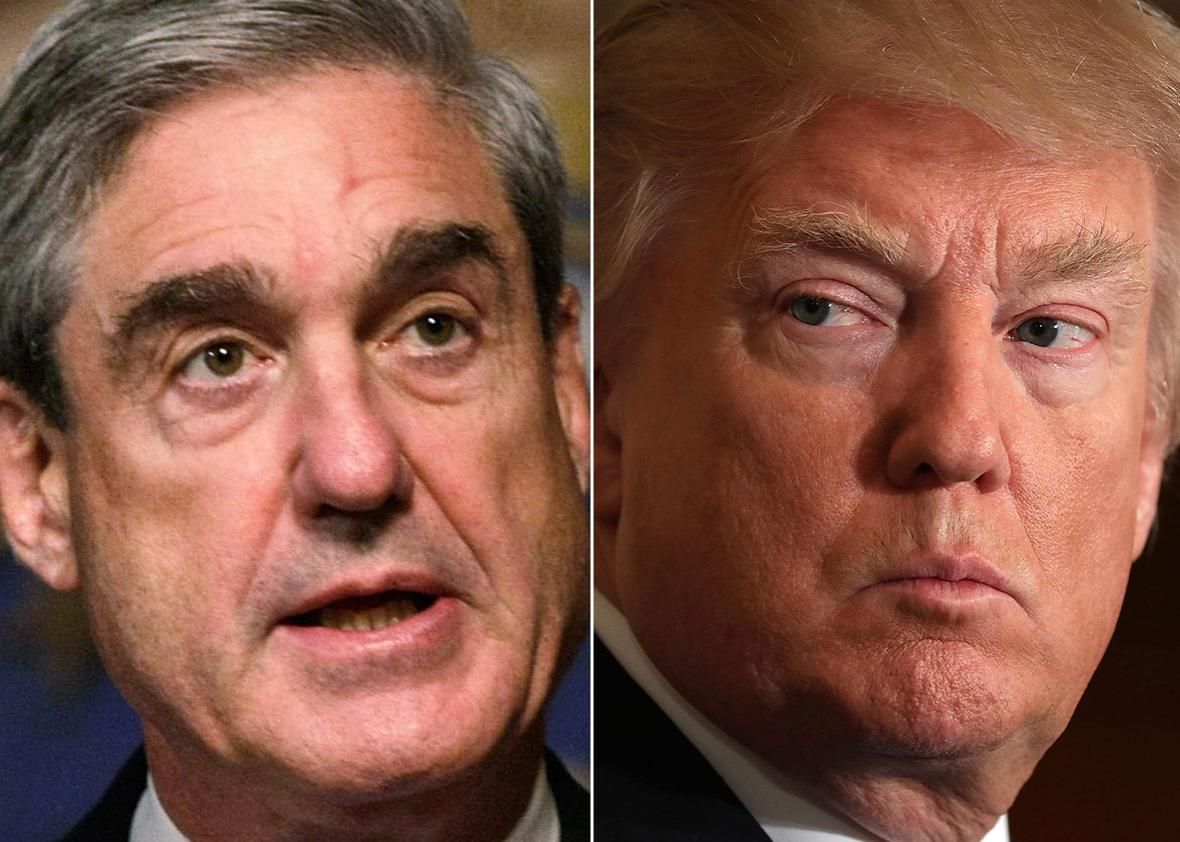Perhaps the most interesting aspect of the Paul Manafort indictment is what it doesn’t say: the name Donald Trump. The indictment is a perfectly clean, amply substantiated case against two people—Manafort and his former business partner Rick Gates—accused of money laundering and tax evasion. By nowhere intimating that these charges have anything to do with the Trump campaign, or collusion between the campaign and Russia, the indictment denies Trump and his apologists the argument that the Mueller probe is a politically motivated witch hunt against the president.
This might be why Donald Trump’s first tweet in response to the indictment doesn’t claim that it is politically motivated but rather that it all happened a long time ago.
Still, so much of this document that is not about Trump is, in many ways, all about Trump. The charges against Manafort and Gates, for instance, mirror what many financial experts have long claimed about the Trump Organization: that they have been at pains to hide money from the IRS, including money from foreign sources; that they have engaged in conspiracies to launder foreign money; that they have made false statements and conspired to hide foreign funds. This is an indictment that should terrify Trump in that it shadows and hints at his own unlawful conduct and nabs two players who might be willing to cooperate to get out of their mess. And Trump can’t claim any of it is a direct attack on him.
The Manafort indictment was followed by the release of a guilty plea that George Papadopoulos, a foreign policy adviser to the Trump campaign, entered earlier in October. According to that plea, Papadopoulos admitted to making “material false statement and material omissions” during an FBI interview on Jan. 27. Back then, he told the FBI that an unnamed professor “told him about the Russians possessing ‘dirt’ on then-candidate Hillary Clinton in the form of ‘thousands of emails,’ but stated multiple times that he learned that information prior to joining the campaign.”
In truth, Papadopoulos had already been hired to join the Trump campaign when the professor contacted him. Moreover, the professor mentioned the “thousands of emails” after Papadopoulos had been working on the campaign for more than a month. And while Papadopoulos had initially claimed that this professor was “a nothing,” Monday’s release indicates that the professor has “substantial connections to Russian government officials”—of which Papadopoulos was aware. More broadly, the statement illustrates that Papadopoulos was extremely eager to coordinate with the Russian government throughout his work on the Trump campaign and that the Trump campaign was eager to find lower-level channels to cooperate on this project.
Unlike the Manafort-Gates indictment, Trump’s name is all over this plea document. But again, where it’s missing is most revealing. The last line of the statement reads: “On July 27, 2017, defendant PAPADOPOULOS was arrested upon his arrival at Dulles International Airport. Following his arrest, defendant PAPADOPOULOS met with the Government on numerous occasions to provide information and answer questions.”
The Papadopoulos plea may wind up being far more consequential for Trump than the Manafort indictment. It indicates that Mueller might already have proof of collusion—or at least evidence of an attempt by Trump’s campaign staff to collude with Russian officials.
Appellate attorney Deepak Gupta told us that Mueller’s decision to release the Papadopoulos plea on Monday signals “where the investigation is really going.”
“The two cases together signal the breadth of the investigation—in time, and subject matter, small fish and big fish,” Gupta said. “The Manafort/Gates indictment deliberately omits anything related to the Trump campaign, which suggests that the play here is to force cooperation among these big fish who have no ideological interests.”
Juliette Kayyem, former U.S. assistant secretary of homeland security for intergovernmental affairs, agreed, telling us in an email: “Manafort may very well end up being a bit of a distraction. If I’m the White House, it’s Papadopoulos that I’d be worried about. It is the ones we don’t know about, the defendants far from the limelight, that often bring the whole house down.”
Mueller does not need to go after Manafort for crimes that might implicate Trump—not yet, at least. On Monday, he moved to take down two crooks for predictable financial crimes unrelated to Trump and followed that up with a shocking revelation that the investigation has uncovered evidence of attempted collusion between a member of the Trump campaign and the Russian government. In other words, he already has a lead on collusion; now he needs to flip the most flippable major players to get at the big fish—including, perhaps, the biggest fish of all.
